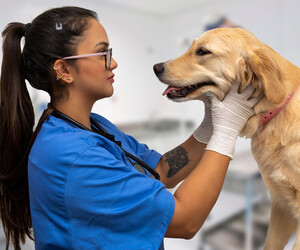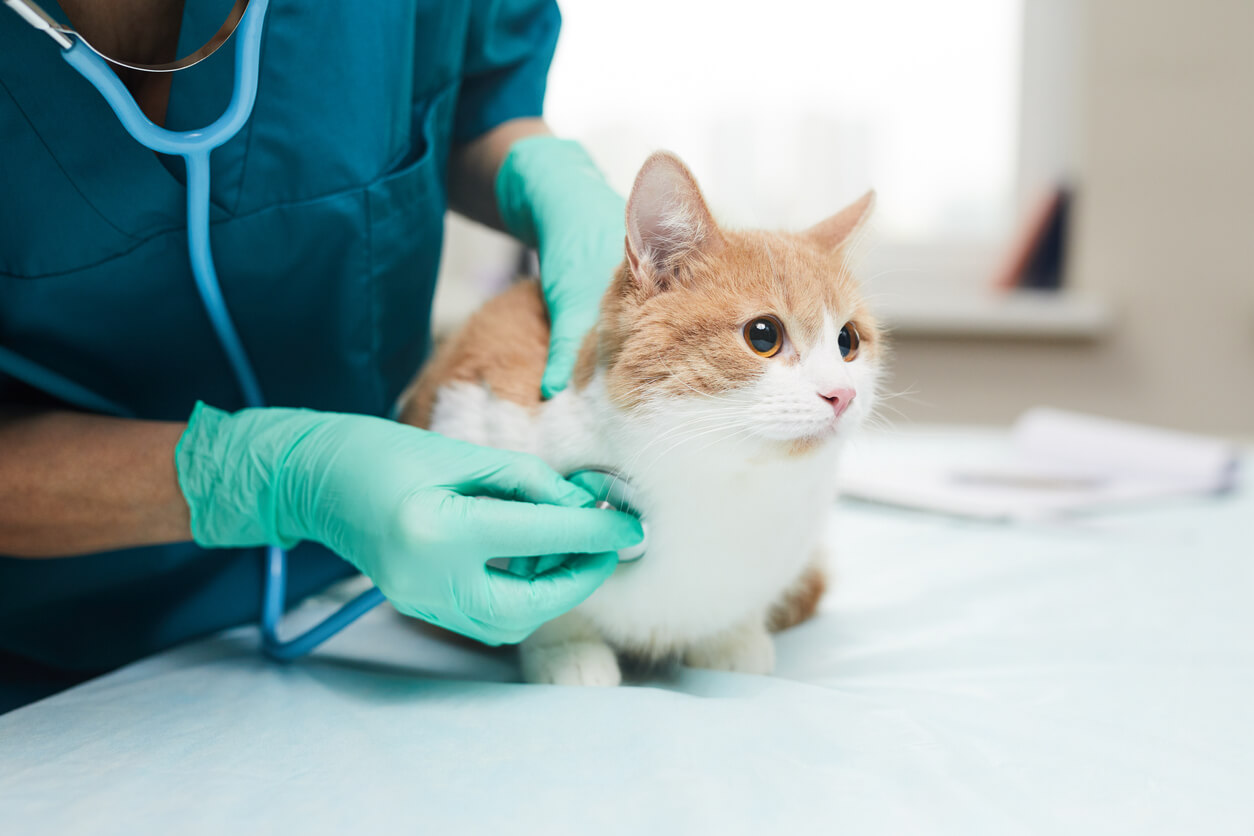Inoculation Standards From Your Trusted Vet
Vaccination guidelines offered by your relied on veterinarian play a critical duty in securing your family pet's health and well-being. Core vaccinations are essential for all animals, while non-core vaccines can be customized to certain way of lives and environmental exposures. Comprehending the nuances of inoculation routines, which begin as very early as 6 to 8 weeks, is crucial for ideal protection. In addition, resolving typical mistaken beliefs surrounding vaccinations can even more boost family pet owners' self-confidence in these safety nets. As we check out these critical facets, it ends up being increasingly clear why normal examinations with your veterinarian are important for informed decision-making.

Value of Inoculations
Vaccinations play a pivotal role in guarding animals against an array of preventable conditions. By boosting the body immune system to recognize and deal with particular microorganisms, vaccines significantly lower the occurrence of infectious illness that can impact a family pet's health and wellness and longevity. Not just do vaccinations secure specific pets, however they also add to herd immunity, thereby reducing the total occurrence of diseases in the family pet population.
Prompt vaccinations aid to reduce the spread of diseases such as rabies, parvovirus, and distemper, which can have serious consequences for both family pets and humans. Vaccinations are frequently a requirement for boarding facilities, brushing services, and dog parks, making them important for those that wish to mingle their pet dogs.

Core Vaccinations for Pet Dogs
While the certain vaccination demands of animals can vary based upon individual aspects, core vaccines are globally suggested to shield versus the most typical and serious illness (Veterinarian Enterprise). Core vaccinations are those deemed crucial for all animals, no matter their way of life or geographic area, as they secure against possibly fatal and extremely transmittable health problems
For pets, the core vaccines include those for canine distemper, parvovirus, adenovirus (hepatitis), and rabies. Canine distemper is a viral illness that influences the respiratory system, stomach, and anxious systems. Parvovirus is understood for triggering serious gastrointestinal ailment, particularly in young puppies. Adenovirus can lead to liver condition, while rabies is a zoonotic condition that positions a danger to both humans and family pets.
In pet cats, core injections incorporate feline panleukopenia, feline calicivirus, feline herpesvirus (rhinotracheitis), and rabies. Feline panleukopenia is an extremely transmittable viral disease that influences the immune system and intestinal tracts. Calicivirus and herpesvirus are significant contributors to top breathing infections in pet cats, while rabies stays an important issue for public health and wellness.
Seek advice from your vet to guarantee your pets obtain their core inoculations on timetable.
Non-Core Vaccines Explained
Non-core vaccinations are customized to resolve details dangers linked with a family pet's direct exposure, setting, and lifestyle to particular illness. Unlike core injections, which are widely suggested for all pet dogs, non-core vaccines are thought about based on specific situations. These vaccines are specifically crucial for animals that might come across special pathogens as a result of their geographical place, travel routines, or activities.
Examples of non-core vaccines consist of those for Bordetella Discover More bronchiseptica, which is connected to kennel coughing, and Lyme illness, brought on by ticks. Pets that frequently connect with various other animals, such as those in boarding centers, dog parks, or brushing environments, might take advantage of Bordetella inoculation. If you live in a location where Lyme illness is prevalent, vaccinating against this condition can be a prudent option for outdoor-loving pets.
Other non-core vaccinations may include those for leptospirosis, canine flu, and feline leukemia, relying on the particular danger factors present. It is necessary to have a thorough discussion with your vet about your pet dog's way of life and the prospective need for these vaccinations, making certain a customized inoculation strategy that best secures your hairy friend.
Inoculation Schedule Summary

As animals develop, it is very important to adhere to the recommended booster inoculations. Emergency Vet. For adult animals, core vaccines are typically offered every one to three years, relying on the certain injection and regional regulations. Non-core vaccinations may be suggested based on way of living variables and regional disease prevalence, requiring a customized technique
Normal vet exams are critical for updating vaccination timetables. Your veterinarian can supply guidance on one of the most appropriate booster shots for your animal, considering age, health status, and ecological risks. By staying proactive and informed, pet dog proprietors can find out guarantee their hairy friends obtain prompt and efficient inoculations, thus guarding their health and wellness throughout their lives.
Typical Misconceptions Concerning Vaccines
Misconceptions regarding pet vaccinations can result in confusion and reluctance among pet dog proprietors concerning the booster shot procedure. One common misconception is that vaccinations are unneeded for indoor pets. While it's real that interior animals encounter reduced risks, they are not totally unsusceptible to illness, as pathogens can be presented with different means, including human apparel and other family pets.
An additional false impression is that vaccinations can trigger the conditions they aim to avoid. In truth, many vaccines include inactivated or attenuated virus, which can not trigger illness in healthy and balanced animals. Some pet proprietors additionally think that their pets should not be immunized if they are currently healthy and balanced; however, inoculations are a positive action that assists protect against the onset of health problem.
In addition, many family pet owners fear that vaccinations will lead to long-term wellness issues. The advantages of vaccination-- shielding family pets from possibly serious diseases-- much outweigh the threats.
Final Thought
In recap, adherence to vaccination standards is critical for making certain the health and wellness and longevity of pet dogs. Eliminating common misconceptions surrounding inoculations even more reinforces the relevance of notified decision-making in pet treatment.
Not only do vaccinations protect individual animals, yet they likewise add to herd resistance, thus decreasing the general occurrence of conditions in the animal population.
Misconceptions about animal vaccinations can lead to confusion and unwillingness among pet dog proprietors relating to the immunization process. While it's true that indoor pets face lower risks, they are not completely immune to diseases, as virus can be presented through different ways, consisting of human apparel and other animals.
Some pet dog owners additionally believe that their family pets need to not be vaccinated if they are already healthy and balanced; however, vaccinations are an aggressive procedure that aids avoid the onset of ailment.
The benefits of inoculation-- protecting pet dogs from potentially serious illness-- much surpass the threats.
Comments on “Selecting the most effective Veterinarian Enterprise for Timely and Compassionate Pet Care”